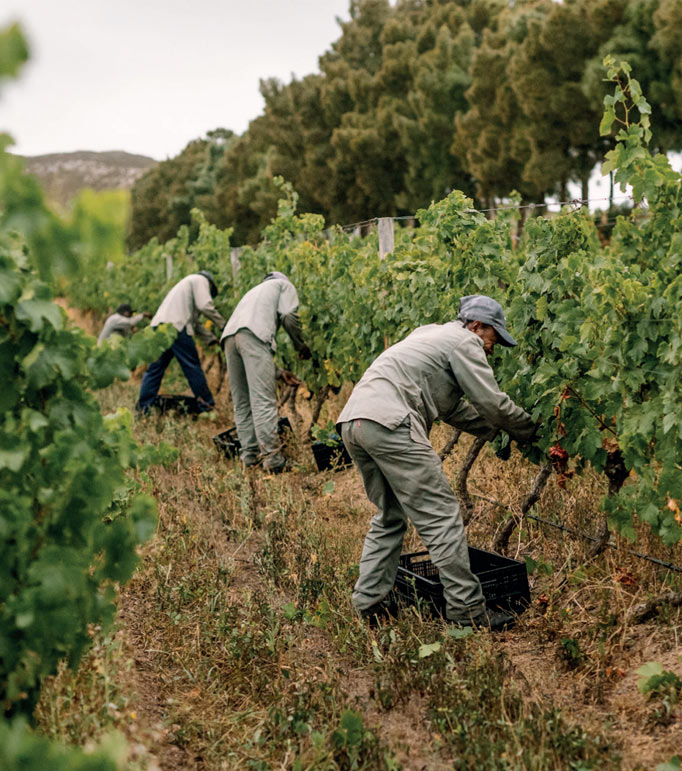Regenerative Farming – Quality soil makes better wine

By Hedda Mittner
The term ‘regenerative farming’ refers to a holistic alternative to the degenerative effects of conventional agriculture on natural habitats and ecosystems. It’s transforming the wine industry’s approach to viticulture, and in a biodiversity hotspot such as Hemel-enAarde, winegrowers are committing to the approach.
Hasher Family Wines is a progressive winery that has adopted regenerative farming practices to foster a harmonious relationship between viticulture and the environment. Owner Frederik Herten emphasises the long-term vision vested in the approach: “We’re not just farming
for today, but for future generations. Regenerative practices ensures the land we cherish will continue thriving and producing exceptional wines for years to come.”
This holistic approach to vineyard management looks beyond the vines to encompass the entire ecosystem. The focus has shifted from mere grape production to nurturing soil health, promoting biodiversity, and preserving the natural balance of the land.
A significant change at the Hasher Estate has been the complete elimination of pesticides. Local predator bugs are introduced to combat the mealybug, while runner ducks keep the snail population in check.
Natural pest control not only protects the vines but supports the local ecosystem. Herbicides are a thing of the past and Hasher’s vineyards now boast permanent cover crops, regularly mowed to maintain optimal growth. Plans are underway to introduce sheep to serve as natural lawnmowers, further reducing the need for mechanical intervention.
Soil health is paramount in the regenerative approach. Compost tea, a nutrient-rich liquid, introduces essential microbiological life for a healthy underground ecosystem. A newly acquired compost tea machine is being shared among neighbouring vineyards, fostering a spirit of collaboration and resource efficiency.
This collaborative spirit amongst Hemel-en-Aarde wine farms extends to environmental stewardship beyond just vineyards. Establishing wildlife corridors throughout the region, enables local fauna to safely roam the landscape. As these regenerative practices take root, the Hemel-en-Aarde winegrowers are becoming not just the producer of fine wines, but guardians of a thriving, sustainable ecosystem. This holistic approach promises a brighter future for both the wine industry and the natural world it depends upon.


